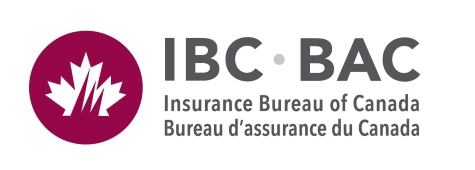HALIFAX, NS, April 25, 2023 /CNW/ - As the warmer spring weather arrives in Atlantic Canada, rain coupled with snowmelt in parts of the region presents an increased risk of flooding. Insurance Bureau of Canada (IBC) is informing consumers about how they can prepare for the 2023 flood season by protecting themselves and their property from water damage.
"As we've seen many times across the Atlantic Canada, flooding can cause extensive damage to your home and property," said Amanda Dean, Vice-President, Atlantic, IBC. "Being prepared for any severe weather event is important for your personal safety and financial security. Part of that includes mitigating any damage to your property when it is safe to do so."
Present Flood Risk in Atlantic Canada:
New Brunswick
- As reported by multiple media outlets, Fredericton, Maugerville, Gagetown and Jemseg reached flood stage last week.
- Water levels in lower St. John River are expected to decrease in Fredericton and Maugerville.
- In other southern communities such as Grand Lake, Sheffield-Lakeville Corner, Oak Point, Hampton, and Quispamsis-Saint John, water levels are not expected to reach flood stage in the coming days.
- For more information, please visit the New Brunswick River Watch webpage.
Newfoundland & Labrador
- While there are no active provincial alerts at the time of publication, residents living near the Humber River should remain vigilant at all times. Generally, this region does experience flooding due to snowmelt.
- For more information, please visit the Newfoundland & Labrador Alerts & Monitoring webpage.
Nova Scotia
- There are no active provincial flood alerts at the time of publication.
- For more information, please visit the Nova Scotia Emergency Alerts webpage.
Prince Edward Island
- There are no active provincial flood alerts at the time of publication.
- For more information, please visit the Prince Edward Island Emergency Alerts webpage.
IBC's Top 10 tips to help protect your property from water damage:
- Keep all your floor drains and the storm sewer grates on your street clear of obstructions. Consider installing a backwater valve when possible to do so.
- Make sure downspouts are clear of debris and that they direct water away from your home to help prevent basement flooding.
- Move valuable items out of your basement to higher levels in your home.
- If you have a sump pump, ensure that it is working properly and has a backup power source.
- Have someone check your property if you are away from home.
- If you need to drive, drive according to the conditions and do not drive over flooded roads.
- During periods of heavy rainfall, limit the amount of water usage (including appliances such as dishwashers or clothes washers) within the house.
- Consider using rain barrels to help hold and manage excess rainwater around the property.
- If flooding is imminent, shut off electricity to the areas of the home that may be affected and use sand bags, or install flood shields or built-up barriers to stop water from entering through basement windows and doors.
- Raise large appliances, electrical panels, the furnace and the hot water heater off the basement floor on wood or cement blocks. This should be done by professionals well in advance of potential flooding. If a flood is imminent, consider anchoring them and protecting them with a floodwall or shield.
Rest Easier. Know What's Covered.
- Water damage in a basement due to a sewer backup is only covered if you have purchased specific, optional sewer backup coverage.
- Overland flood damage, which occurs when bodies of water such as rivers overflow onto dry land, is only covered if you have purchased specific, optional overland flood coverage. However, if you live in a known flood plain, this coverage may not be available.
- Home insurance and business insurance policies generally do not cover damage caused by coastal flooding and/or storm surge.
- Damage to homes caused by wind is usually covered. This includes damage caused by flying debris or falling branches or trees, or damage caused by water entering through openings.
- In certain circumstances, homeowners who are unable to return home due to insured damage are entitled to additional living expenses.
- If you have purchased comprehensive or all perils automobile insurance coverage, damage to vehicles from wind is usually covered. This coverage is not mandatory, so check your policy.
Flooding remains Canada's greatest climate-related risk, with over 1.5 million households across the country being highly exposed to flooding. IBC looks forward to continuing its work in close collaboration with the federal government and the provinces and territories to establish the country's first national flood insurance program within the next 24 months.
Announced in Federal Budget 2023, this new program is expected to help speed up recovery and rebuilding for displaced families and businesses in flooded communities, and reduce unplanned disaster costs facing the federal government. Its implementation is the single most important step Canada can take to better prepare for the impacts of climate change.
Insurance Bureau of Canada is the national industry association representing Canada's private home, auto and business insurers. Its member companies make up the vast majority of the property and casualty (P&C) insurance market in Canada. For more than 50 years, IBC has worked with governments across the country to help make affordable home, auto and business insurance available for all Canadians. IBC supports the vision of consumers and governments trusting, valuing and supporting the private P&C insurance industry. It champions key issues and helps educate consumers on how best to protect their homes, cars, businesses and properties.
For media releases and more information, visit IBC's Media Centre at www.ibc.ca. Follow us on Twitter @InsuranceBureau and like us on Facebook. If you have a question about home, auto or business insurance, contact IBC's Consumer Information Centre at 1-844-2ask-IBC.
SOURCE Insurance Bureau of Canada
Media Contact: Brett Weltman, Manager, Media Relations, IBC, [email protected]

Share this article